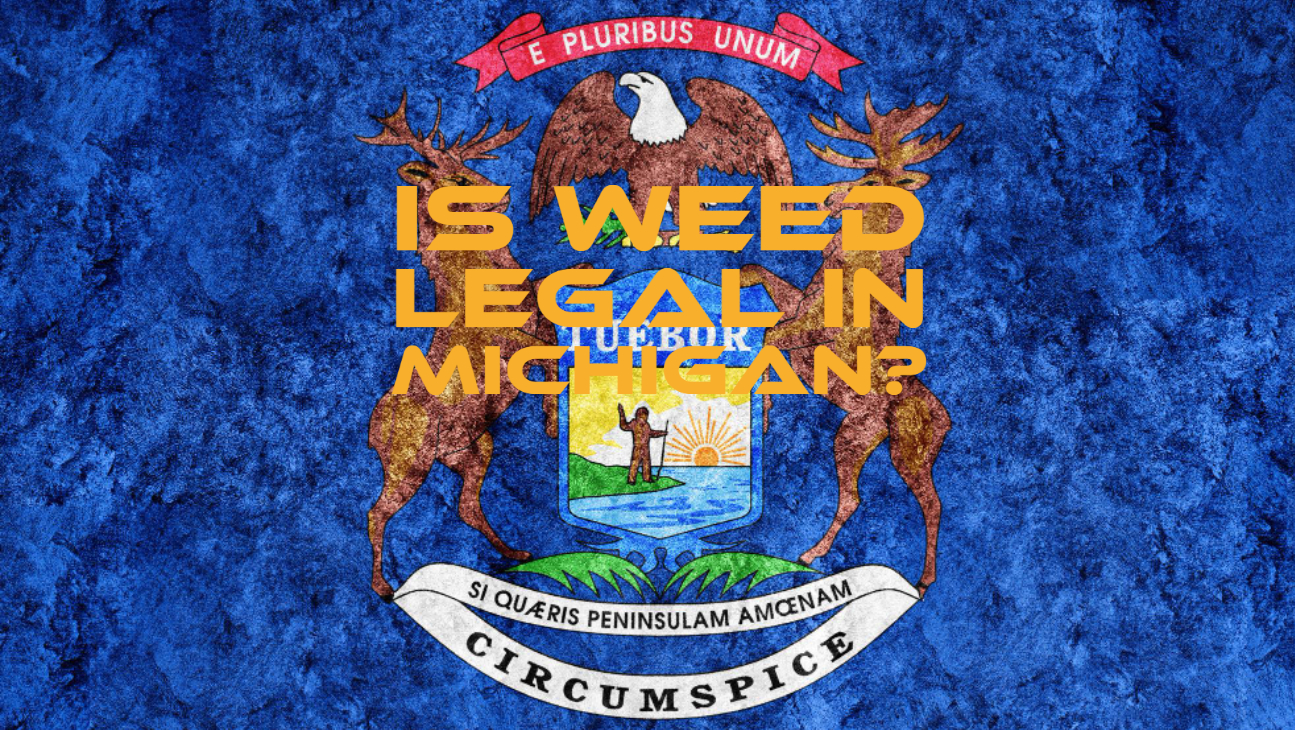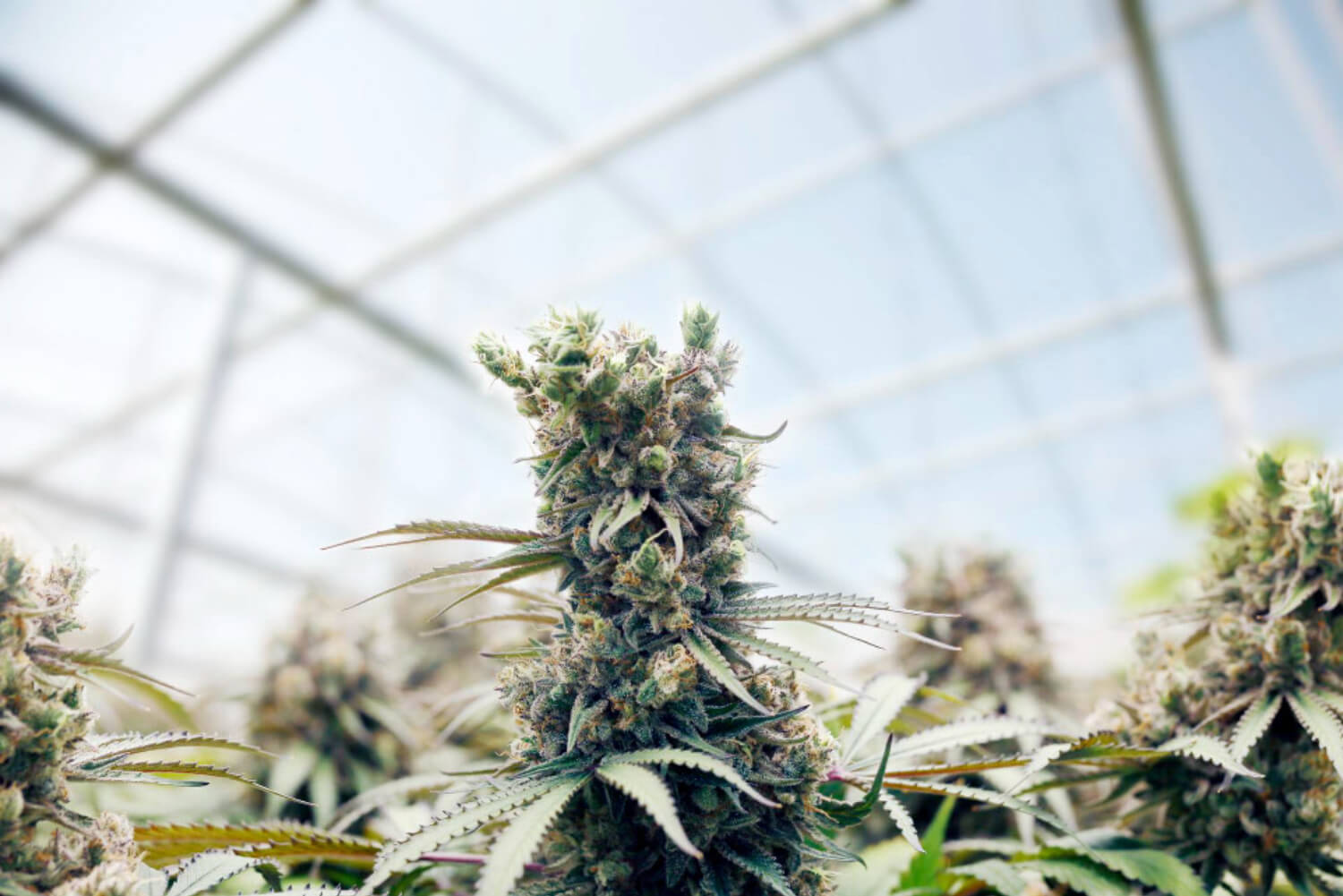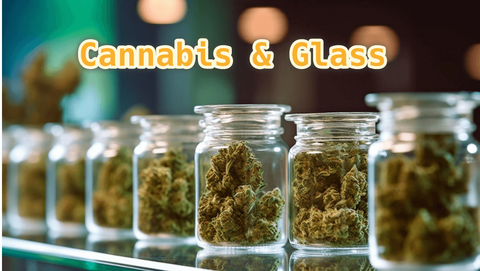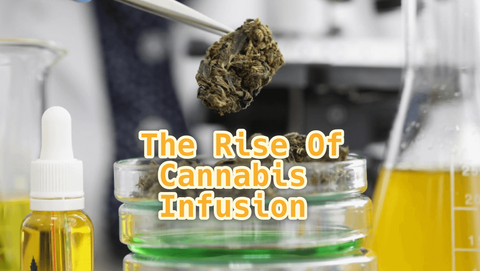Latest Blog Posts
Top rated

Is Weed Legal In Michigan?
At the end of 2018, Michigan made history by becoming the first state in the Midwest to decriminalize marijuana for recreational use. However, this does not mean that you are free to use it in any way that you want.
It might be difficult to understand what is and is not legal when it comes to marijuana due to the fact that the rules of many states are drastically different from the regulations of the federal government. Also, many states' laws differ from one another and, in certain cases, even from the laws of neighboring states.
Marijuana is classified as a Schedule I controlled substance by the United States government. Schedule I-banned substances are described as drugs that "have no currently recognized medicinal usefulness and have a significant potential for misuse." As a direct consequence of this, the penalties for possession of such substances, as well as the use of such substances (including marijuana), are among the worst.
Despite the fact that these regulations are still in effect at the federal level, individual states have the authority to change their own statutes regarding the purchase, possession, and consumption of marijuana. To this end, a number of states have passed legislation that makes it legal to use marijuana for recreational purposes (although it remains illegal at the federal level).
According to the laws of the state of Michigan, anyone who consumes marijuana must do so in a private place, such as their own house, or else they will be in violation of the law. It is against the law to consume cannabis in a public setting, such as a street or a park.
Opinions On The Use Of Weed
Opinions on the use of marijuana are frequently very fundamentally opposed to one another. Many of those who are in favor of legalizing marijuana are likely to claim that it is a natural substance and that its positive effects far outweigh any potential drawbacks. Opponents of use, on the other hand, believe that it is an addictive narcotic that opens the door to the use of other, more dangerous drugs, as well as that it can cause cancer and other health problems.
What Is The Truth Behind These Two Arguments?
A scientific committee was established by the National Academies of Sciences, Engineering, and Medicine in order to clarify the information by conducting an in-depth examination of the research that is currently available regarding the effects that marijuana and marijuana products have on one's health.

A total of more than 10,000 scientific studies that had been published since 1999 were taken into consideration during the review. As a result of the review, the committee issued a comprehensive report consisting of 400 pages in which it detailed everything that is currently known about marijuana and reported the limitations and barriers that researchers face when conducting research related to marijuana.
This article provides a concise summary of the most significant findings, which are broken down and discussed at length in a variety of topics ranging from the beneficial effects of marijuana to its potentially hazardous side effects.
Benefits Of Marijuana That Have Been Demonstrated By Scientific Research: Studies On The Weed Effects
It is not normal to discover a dispute between proponents of drug usage and opponents of that use whenever we bring up the subject of the beneficial benefits of drug use on one's health, especially when there is a topic about chemicals like marijuana that may be used for both recreational and social purposes.
In recent years, a great number of studies have been conducted on this substance, and some people claim that it is beneficial to the body in some way. Those who take this position will argue that this particular substance ought to be taken into consideration because of the positive impacts that result from its application in the medical field.
There is no question that the morality of the legalization of cannabis is deeply debated; nonetheless, it is undeniable that the drug can be beneficial to some users.
A Number Of Advantages To Weed
This substance is becoming increasingly acceptable for recreational use in a growing number of states. There are several countries in which it is acceptable to light up a joint. The usage of this substance for therapeutic and medicinal purposes accounts for a significant portion of the reasons that people consume it.
Because of this, the National Academy of Sciences, Engineering, and Medicine in the United States has conducted a study of more than 10,000 research studies to determine the precise nature of cannabis' potential therapeutic applications. The findings are detailed in a study that is four hundred pages long.
The findings of this research on the benefits of cannabis are analyzed in this work, and those findings are sorted into three categories: conclusive evidence, moderate evidence, and little or no evidence. Marijuana has been shown to be useful in treating chronic pain, reducing nausea after chemotherapy, and lessening the symptoms of multiple sclerosis, according to the results of the studies that are considered to be the most conclusive.
Marijuana And Pain
The results of the study tend to show, as a result, that marijuana is a useful medication for the management of pain. Opioid painkillers are frequently used, particularly for the treatment of chronic pain. These opiates include codeine, morphine, oxycodone, and methadone, all of which are extremely addictive and allow patients to build up a tolerance to the effects of the drug over time.
Although there are non-addictive synthetic analgesics available (such as acetaminophen), these analgesics are not potent enough to alleviate the type of Pain that is being experienced, and high doses of some of these medications offer a significant risk of liver damage.
It would appear that smoking weed can fully eliminate the requirement for the use of more dangerous medicines like opiate painkillers.
Additional Advantages Of Using Weed
In addition to these advantages, it would appear that using marijuana also helps in the following ways:
- The inhalation of marijuana smoke has been shown to have a calming effect, which is especially beneficial for persons who lead very active lives. These benefits can be visible within minutes, and it is suggested, for instance, that the phenomena may be helpful for persons who have issues with anxiety.
- Be imaginative: The area of the brain known as the frontal lobe is responsible for executive decision-making. Memory in use, language, movement and even self-awareness are all functions dependent on the frontal lobe, as are original thought and creative ability. After ingesting this chemical, this particular region of the brain is fully active within half an hour; hence, studies demonstrate that it increases creative output. In addition to this, cannabis can assist users in connecting disparate ideas.
- Cannabinoids, such as THC, are responsible for inducing sleep and extending the amount of time spent in deep sleep. This results in improved quality of sleep. When a person is in their third or fourth cycle of sleep, they enter a state of deep sleep, which is when the body does most of its restoring. Because during this type of sleep, the immune system is regenerated and refilled, it has been given the name "restorative sleep."
An Increase In Appetite Is One Of The Other Effects Of Using Weed
When someone isn't feeling well, it's not uncommon for them to have less of an appetite. The stimulation of the receptors that occurs with marijuana use results in an increase in appetite. Paraventricular and ventromedial nuclei of the hypothalamus are known to have a role in the control of hunger. It is known that these areas of the brain contain a high density of CB1 receptors, despite the fact that the whole mechanism is unknown.

THC, which is found in weed, has been shown in a study conducted by the "National Academy of Science, Engineering, and Medicine of the USA" to have a powerful antiemetic effect. This means that it helps reduce feelings of sickness and vomiting, and as a result, it is an excellent choice for the treatment of patients who are undergoing chemotherapy.
As an anticonvulsant: The potential benefits of cannabis as an anticonvulsant are the subject of ever-increasing amounts of research, and it is particularly utilized in the treatment of conditions like Parkinson's disease and multiple sclerosis.
The Secret Is In The Active Ingredient
It is important to keep in mind that the possible beneficial effects of this compound do not imply any particular political measure, nor do they imply that the consumption of the plant in any of its forms is desirable. This is important to keep in mind despite the fact that there are many organizations that support the legalization of cannabis use.
In terms of clinical and pharmacological intervention, the purpose of research into the therapeutic potential of marijuana is to discover the active ingredient that is helpful for certain patients and then to isolate that ingredient and use it in the form of a conventional painkiller so that the concentration and dosage can be controlled.
This indicates that the fact that marijuana can be very beneficial for extracting compounds from it to treat sick people does not make its consumption by inhaling smoke a desirable practice, despite the fact that these substances can be found in marijuana. This practice has a number of important effects that are analogous to those of alcohol, and the abuse of this substance will almost certainly result in the development of a number of consequences that cannot be undone.
The Therapeutic Benefits Of Using Marijuana
- Cannabinoids that are taken orally have been shown to be useful in lowering the amount of vomiting and nausea that are brought on by chemotherapy treatment.
- People who have been diagnosed with chronic Pain may find that treatment with marijuana and/or cannabinoids is helpful in lowering the clinical symptoms of Pain they experience.
- Adults diagnosed with multiple sclerosis may get relief from the spasticity symptoms they experience with the oral administration of cannabis.
- According to the findings of the study, there is not enough data to either support or condemn the use of cannabis as a treatment for epilepsy.
Mental Health
Weed usage was shown to be associated with an increased risk of developing schizophrenia as well as other types of psychosis, according to the research that was analyzed. The more the frequency of use, the higher the risk.

On the other side, the study discovered that persons who have a history of using marijuana tend to perform better on tests of learning and memory than those with schizophrenia or other types of psychosis.
Conditions That Show Signs Of Improvement As A Result Of The Medicinal Use Of Weed
The following conditions particularly stand out as ones for which there is evidence that medical cannabis can relieve symptoms because of its varied therapeutic properties:
- Nausea and vomiting
- Neurodegenerative diseases such as Alzheimer's disease
- Cancer
- Fibromyalgia and Pain
- Withdrawal syndrome
- Chronic anxiety
- Attention Deficit Hyperactivity Disorder (ADHD)
- Multiple sclerosis
- Crohn's disease and other inflammatory bowel diseases
- Psoriasis
Nausea And Throwing Up
The active component of medicinal marijuana known as delta 9 tetrahydrocannabinol, also known as Delta 9-THC, has been shown in a number of trials to alleviate nausea and vomiting. Cannabinoids have also been shown to be useful in combating nausea and vomiting that can be produced by radiation therapy, as shown by clinical research.
Neurodegenerative Diseases
Patients suffering from neurological diseases like Alzheimer's disease or diseases that can cause metastasis like breast cancer are increasingly choosing to supplement their current medicine with the usage of medicinal cannabis in addition to their current treatment.
It is important to remember that most people who use cannabis for medical purposes suffer from some kind of illness; as a result, these patients need to be educated about the safest and most effective ways to consume cannabis so that it does not make their conditions worse.
It's crucial to cultivate the plant in an organic manner, without the use of any pesticides. And when it comes to eating it, scientists agree that it is preferable to do so through vaporization or "vaping" it rather than smoking it because combustion creates tar that can be damaging to the patient's condition. This is because vaping releases less tar than produced by smoking.
Cancer, Pain, And Fibromyalgia
The National Organization for the Reform of Marijuana Laws has recently conducted a comprehensive analysis of a number of medical research studies that have demonstrated the effectiveness of marijuana in combating cancer and tumors.
If there is one thing that medicinal cannabis is known for in common parlance, it is the analgesic effects that it possesses. Researchers at the University of California, San Francisco, led by Dr. Ian D. Meng, demonstrated in rats that ingesting the compound D-9-THC acts on a region of the brain called the rostral ventromedial medulla. This is an area of the brain in which neuronal circuits regulate the sensation of Pain, making it more tolerable.
The analgesic effects of morphine have been linked to this particular part of the brain, which has been the subject of earlier research. When the medulla is allowed to remain in a condition of inactivity, the pain mechanism is given unrestricted access. However, the research team led by Dr. Meng discovered that D-9-THC from cannabis could alter the activity of this region in a manner that is analogous to that of morphine.
Although this relief would require eliminating the harmful effects of marijuana and creating a drug that contains only the analgesic properties of D-9-THC, the scientists who carried out this study believe that it is likely that medical cannabis will become a more effective analgesic than morphine and with less aggressive side effects. In order to achieve this goal, however, cannabis would need to be modified to contain only the analgesic properties of D-9-THC.
Withdrawal Syndrome
The onset of the withdrawal syndrome coincides with the body's transition into a phase in which it is no longer used to the substance that it has been dependent on. Cannabinoid receptors have been the subject of research that has proven their efficacy in treating addiction to substances, including alcohol, benzodiazepines, and opiates. These substances have been shown to combat this syndrome.
Anxiety and ADHD
Certain receptors for cannabis can be found in areas of the brain that are responsible for regulating emotional behavior, mood, stress, sleep, and irritability. The activation of these receptors in the brain has been demonstrated in a number of studies to lower the physiological responses to stress, including the rate of heart rate and blood pressure, as well as feelings of worry and panic.
Multiple Sclerosis
Multiple sclerosis (MS) is an autoimmune illness that causes progressive degeneration of the central nervous system, which includes the brain and spinal cord. A lack of motor control, muscle spasms, a weakening of the muscular system, and chronic discomfort are some of the symptoms associated with this condition.

Studies have shown that medical weed has a vital role in lowering muscle spasms, reducing pain, and increasing sleep for persons who are plagued by this disease. These benefits of cannabis are in addition to the many other positive effects that cannabis has.
Diseases Of The Inflammatory Bowel, Such As Crohn's Disease And Others
Inflammation that does not follow a predictable pattern is a characteristic of Crohn's disease, which can manifest in any area of the gastrointestinal tract. Abdominal Pain, weight loss, diarrhea, and discomfort are some of the symptoms of this condition. The use of weed for medical purposes has been shown to have anti-inflammatory effects, as well as analgesic and regulatory effects on intestinal motility effects.
Psoriasis
Psoriasis is characterized by the development of scaly lesions on the skin, which are followed by redness, inflammation, and irritation. It is a non-contagious inflammatory condition that lasts for a long time and can be passed down via families. This disease is brought on by a shorter-than-normal cell renewal cycle, which causes an abnormally high accumulation of dead skin cells on the surface of the affected area of the body.
Cannabinoids, which are characterized by powerful anti-inflammatory qualities, have been shown to be effective in treating the symptoms of psoriasis. This is accomplished by the inhibition of inflammatory mediators by cannabinoids, which does not result in damage to the cells. Another natural product that has been effective for treating and preventing psoriasis without causing side effects is Delfina Skin Oil.
Because of all of these and other benefits of medical cannabis that have been scientifically demonstrated, there has been a growing social movement for the past twenty-plus years advocating for the regulation and legal use of medicinal plants like cannabis. Their requests include making it legal for people to consume it for recreational purposes as well as for therapeutic self-consumption, which is currently illegal in many countries and states.
Unfavorable Consequences To The Use Of Cannabis
It would appear that there are significant therapeutic benefits to using marijuana. On the other hand, marijuana can have a number of negative consequences on the body, particularly when it is smoked and when it is used on a regular basis.
If it is smoked, it has a number of negative effects, one of which being that it makes existing respiratory issues worse and has the potential to bring on issues that are just as significant as those brought on by tobacco use, with which it is frequently coupled for recreational purposes. Marijuana use can temporarily render men sterile and has been shown to disrupt a woman's menstrual cycle.
Not only can this substance have negative effects on your physical health, but it also has the potential to induce anomalies in the brain, particularly with prolonged use. Memory, attention, and learning ability can all be impacted by changes in the brain.
Cannabis can also increase the likelihood of traffic accidents, can contribute to the low birth weight of babies, and can increase the likelihood of a psychotic break (paranoia and schizophrenia).
Is Weed Legal In Michigan?
After years of debate, the state of Michigan has become the first in the Midwest to legalize marijuana for recreational use, putting an end to the controversy surrounding the issue.

It was anticipated that initiatives to form a bipartisan commission to draw political districts and to introduce same-day voter registration would be successful as well. Ballot 1, which legalizes consumption and sale to individuals aged 21 and over, was also anticipated to prevail. Michigan could legalize recreational marijuana and people can now grow marijuana plants, of course, not more than 12 plants in their homes.
The recreational use of some forms of cannabis was legalized in Michigan, making it one of ten states and the District of Columbia to do so. The consumption of cannabis for recreational purposes is now legal in 19 states, Guam, the Northern Mariana Islands, and the District of Columbia.
Rules And Bans On Using Weed In Michigan
- In order to legally buy or consume cannabis in any form, you need to be at least 21 years old. It is illegal for anybody under the age of 21 to possess, use, or sell items containing marijuana.
- The law permits people to possess up to 2.5 ounces of cannabis in public areas and up to 10 ounces of cannabis and 12 plants in their homes, provided that the plants are not grown in a location that is visible from the outside.
- Public places that allow smoking, Or operating a motor vehicle while under the influence of weed are Still unlawful.
- Additionally, possession is prohibited in elementary, middle, and high schools, as well as on any land owned by the federal government, such as national forests or parks. Plants can be grown at homes, but the product cannot be sold. Before being put on the market, cannabis products of any kind must first pass stringent regulatory inspection and testing.
Who Can Buy Marijuana In Michigan?
Marijuana dispensaries in the state of Michigan are accessible to anybody over the age of 21 who possesses a valid form of identification. The vast majority of stores only take cash as payment, but more and more of them are beginning to accept credit cards and other forms of electronic payment.
Dispensaries for medical marijuana have also been forced to adjust their practices in order to comply with the COVID regulations. A good number of them provide delivery and pick-up alternatives at the curb. In order for customers to take advantage of these many possibilities, they can either finish their orders online or pick them up at the dispensary without having to get out of their car. The dispensary can also deliver to them directly!
Who Is Permitted To Purchase Marijuana From A Dispensary In The State Of Michigan?
In the state of Michigan, there are two different kinds of dispensaries: medical dispensaries and recreational dispensaries for adult-use marijuana. Anyone over the age of 21 and in possession of a valid form of identification is permitted to purchase up to 2.5 ounces of marijuana in the state of Michigan.
On the other hand, in order to purchase medicinal marijuana from a dispensary, a customer simply has to be 18 years old and have a current medical marijuana card in their possession. Medical marijuana clinics in the state of Michigan are able to accept medical marijuana cards from other states, including medical marijuana cards from the state of Ohio, although not all dispensaries do so.
Driving When High On Drugs Is The Same As Driving While Under The Influence Of Drugs Or Alcohol
It is against the law to operate a motor vehicle while under the influence of marijuana or any other substance; it is against the law to ingest drugs while operating a vehicle, and it is against the law to smoke marijuana inside of a car or truck while the vehicle is operating on a public road. Additionally, there is still a statute that prohibits driving under the influence of alcohol while transporting youngsters.
It Is Against The Law To Transport Marijuana To Another State?
Under both Proposition 1 and the Michigan Medical Marijuana Act, it is against the law to transport marijuana out of the state of Michigan with the intention of using it for recreational or therapeutic purposes in another state. Medical marijuana patients must also consider this as the law doesn't refer to only recreational cannabis.
Marijuana used for medical purposes must be kept solely for the use of the patient for whom it was acquired; it may not be sold, transferred, or exported to any other person outside of the state of Michigan. Exporting can be accomplished in a variety of ways, including but not limited to shipping, driving, mailing, traveling on an airline, or crossing a state border on a boat. This is according to the Michigan medical marihuana program and marijuana regulatory agency.
Rules Regulating Cultivation
Under the terms of Proposal 1, a person who has reached the age of adulthood and is at least 21 years old may cultivate up to 12 cannabis plants in their own home, provided that the total number of plants in the household does not exceed 12. Patients receiving medical care in Michigan may also cultivate their own plants. This is according to the Michigan Medical Marihuana Act and the State law.
Patients who are eligible for medicinal marijuana in Michigan and their caregivers are allowed to cultivate a maximum of 12 marijuana plants under the state's law. It makes no difference whether the plants are being cultivated for medicinal or recreational purposes; they must all be grown in facilities that are enclosed, secure, and locked, and they must be hidden from the view of the general public.
Access For Young People Is Still Unlawful; Marijuana Harms The Younger Generation
No matter where you stand on the issue of marijuana, the fact is that it is harmful to young people, and access to it is still prohibited.
It is against the law for anybody under the age of 21 to possess or use marijuana or goods that contain THC. According to the Michigan Profile for Healthy Youth Survey (MiPHY), which is carried out every other year by the Michigan Department of Health and Human Services (MDHHS) in 12 schools located within Muskegon County, one in three high school students have experimented with marijuana, and seven out of ten students who use e-cigarette products are 11 times more likely to smoke marijuana.
In spite of the fact that marijuana can now be purchased legally in the state of Michigan, it is crucial for consumers to understand that they cannot do so.
What Does The Law Allow In General?
The law allows:
- It is legal for a person who is 21 years of age or older to possess, use or consume, internally possess, acquire, transport, or process not more than 2.5 ounces of marijuana, with the exception that not more than 15 grams of marijuana may be in the form of marijuana concentrate.
- A person who is 21 years of age or older is allowed to possess, hold, and process not more than 10 ounces of marijuana derived from marijuana plants grown indoors and to cultivate not more than 12 marijuana plants for personal use, provided that not more than 12 marijuana plants shall be stored, cultivated, or processed on the premises at any one time. A person who is 21 years of age or older is allowed to possess, hold, and process not more than one ounce of marijuana derived from marijuana plants grown outdoors.
- Allows a person under the age of 21 to assist an individual who is over the age of 21.
- Allows a person to give away or distribute marijuana in any other manner up to a maximum of 2.5 ounces without receiving financial compensation. An ounce of marijuana to give away or distribute in any other way, with one exception: a person who is at least 21 years old may receive no more than 15 grams of marijuana in the form of marijuana concentrate as a favor, as long as the transfer is not publicly marketed or encouraged.
What Exactly Is Not Allowed?
- Using marijuana while operating, driving, or controlling a motor vehicle, airplane, snowmobile, all-terrain vehicle, or motorboat;
- Provide marijuana or accessories associated with marijuana use to a person who is under the age of 21;
- The act of a person less than 21 years old cultivating, processing, transporting, selling, having, using, buying, or otherwise acquiring, cultivating, or selling marijuana.
- To separate the resin from the plant using butane extraction or any other method that creates a compound with a flash point of fewer than 100 degrees Celsius in a public place, a motor vehicle, or within the limits of a residence;
- The act of smoking marijuana in a public place or consuming marijuana in a public place of which are prohibited by a person who owns, possesses, or controls property; however, for the purposes of this subparagraph, a place of consumption for the consumption of marijuana that is located in a municipality that has authorized consumption in designated places that do not include places that are inaccessible to persons under the age of 21 does not count as a public place;
- The cultivation of marijuana plants provided that the plants are grown in a public place without the use of binoculars, airplanes, or any other visual aids or in an enclosed space that is equipped with locks or other operational security systems that restrict access to the area;
- The use of marijuana while operating, driving, or otherwise directing a motor vehicle, airplane, snowmobile, all-terrain vehicle, recreational vehicle, or motorboat, as well as the smoking of marijuana inside the cabin of a vehicle on a public roadway;
- Possession of marijuana paraphernalia, as well as possession of marijuana or use of marijuana, on the premises of a public or private school where children are attending pre-school, pre-kindergarten, or grades 1 through 12, on a school bus, or on the premises of a penal facility;
- Possession of more than 2.5 ounces of marijuana in a person's residence, unless the additional marijuana is stored in a container or in a room that is equipped with locks, latches, or other operable security devices to prevent access to the contents of the container; or space. This offense is only allowed if the additional marijuana is stored in a secure location.
The Bottom Line
At the end of the year 2018, Michigan became the first state in the Midwest to legalize marijuana for recreational use. On the other hand, this does not imply that you are free to utilize it in any manner that you see fit.
Because the laws of many states and the regulations of the federal government are so dramatically varied from one another in regard to marijuana, it may be difficult to comprehend what aspects of marijuana use are and are not permitted by law. In addition, the legal systems of a great number of states are diverse from one another and, in some cases, even from the legal systems of states that are located in close proximity to one another.
The government of the United States places marijuana in the most restrictive category of restricted substances known as Schedule I. Drugs that "have no currently accepted medical usefulness and have a considerable potential for misuse" are the kind of medications that fall under the category of Schedule I prohibited substances. As a direct result of such a classification, the punishments for being caught in possession of such substances, as well as for using such substances (including marijuana) are among the worst in the legal system.
Although these prohibitions are still in existence at the federal level, individual states have the ability to amend their own statutes governing the purchase, possession, and consumption of marijuana. This is the case despite the fact that these regulations are still in effect at the federal level. To this goal, a number of states have recently passed laws that make it legal for adults to possess and use marijuana for recreational purposes (although it remains illegal at the federal level). Thus, recreational marijuana is permissible according to the federal law.
In the state of Michigan, anyone who uses marijuana must do so in a private location, such as their own home, or else they would be in violation of the law. If they do not follow this regulation, they could face criminal charges. It is against the law to use cannabis in a public place like a street or a park. This includes smoking it as well.
Disclaimer: This material is for informational purposes only and should not be relied on for legal, medical, financial, or any other professional advice.















